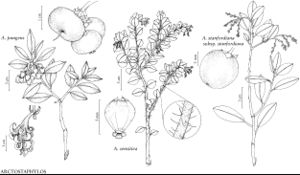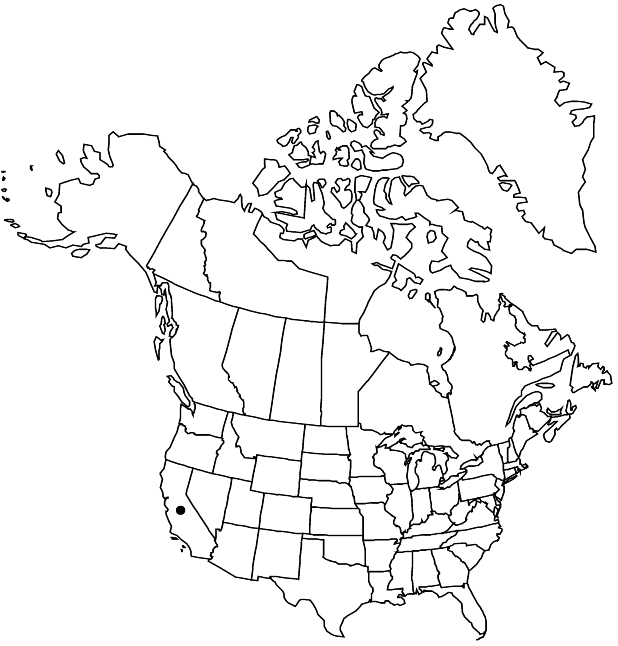Arctostaphylos stanfordiana
Bull. Calif. Acad. Sci. 2: 493. 1887 ,.
Shrubs, erect or prostrate to decumbent, mat- or mound-forming, 0.1–3 m; burl absent; twigs usually glabrous, sometimes sparsely short-hairy, hairs sometimes glandular. Leaves: petiole 4–12 mm; blade bright green, shiny or slightly glaucous, elliptic, oblong, or oblanceolate, 3–5 × 1.5–2.5 cm, base cuneate, (not clasping), margins entire, plane, surfaces smooth, glabrous or, rarely, finely glandular-puberulent. Inflorescences panicles, 3–5-branched; immature inflorescence ascendent, branches wide-spreading, often ascending to erect, axis 2–2.5 cm, to 1 mm diam., usually glabrous, sparsely hairy, or sometimes sparsely glandular-hairy; bracts tightly appressed, scalelike, ovate to deltate, 1–1.5 mm (± equaling buds), apex acuminate, surfaces usually sparsely hairy or sometimes sparsely glandular-hairy; (buds scattered along inflorescence axis, round, appearing as “beads”). Pedicels 5–10 mm, glabrous. Flowers: corolla white to pink, urceolate; ovary glabrous. Fruits subglobose, 6–8 mm diam., glabrous. Stones distinct.
Discussion
Subspecies 3 (3 in the flora).
Selected References
None.
Lower Taxa
Key
| 1 | Twigs, inflorescence axes, and bracts short glandular-hairy. | Arctostaphylos stanfordiana subsp. raichei |
| 1 | Twigs, inflorescence axes, and bracts glabrous or sparsely short-hairy | > 2 |
| 2 | Plants erect, 1-3 m; interior n Coast Ranges | Arctostaphylos stanfordiana subsp. stanfordiana |
| 2 | Plants prostrate to decumbent, 0.1-1 m; Sonoma County. | Arctostaphylos stanfordiana subsp. decumbens |

